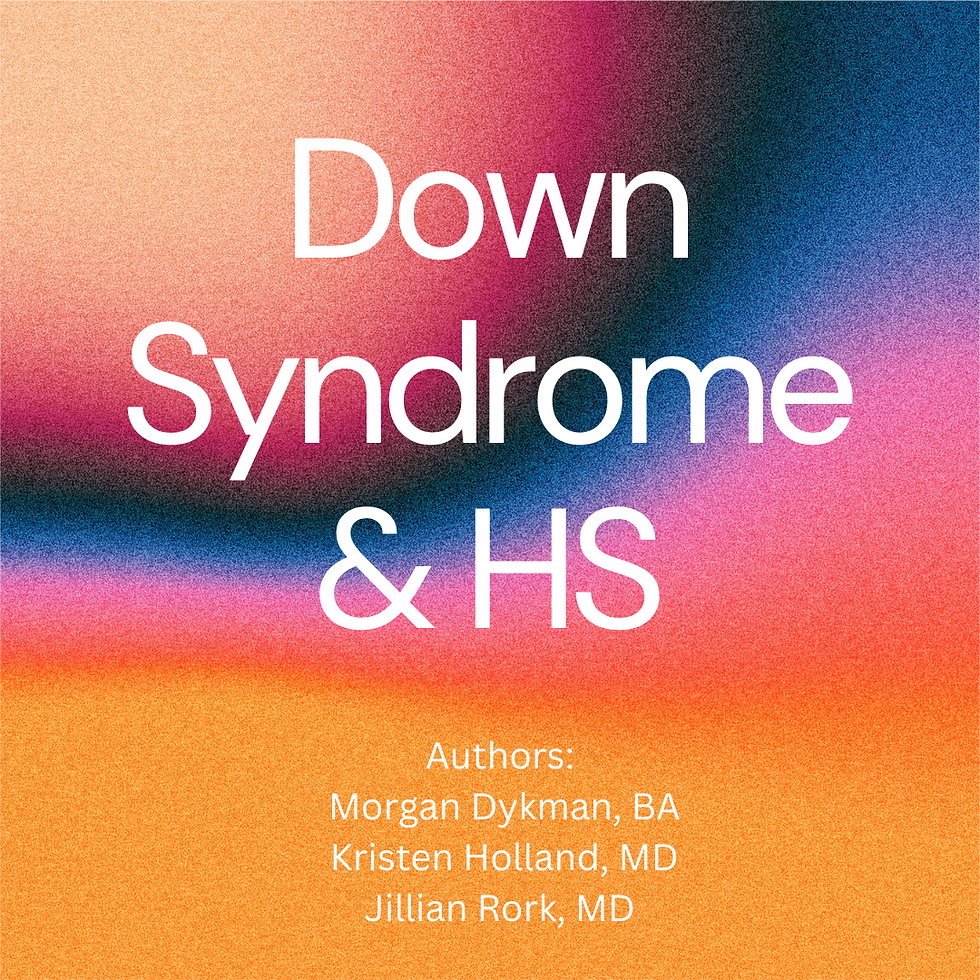We are Not a Rare Breed
- Denise Fixsen

- Nov 13, 2020
- 2 min read
Updated: Nov 24, 2021
HS is NOT rare.
HS is rarely diagnosed (thankfully, this is changing).
HS is rarely diagnosed properly (this too is getting better).

Hidradenitis Suppurativa is not a disease that all doctors encounter, but the disease itself is not rare.
Hidradenitis Suppurativa is a global disease affecting millions of people. It was once thought to be a rare disease, however, it is widely accepted* that HS affects an estimated 4% of the global population (based on reported cases).
There are millions of people, just like us, living with HS. These percentages and numbers do not include unreported, wrongly reported (this does happen), misdiagnosed cases, and those who do not see a doctor for their disease. It would not be surprising if that percentage was closer to 7 or 8% globally. *based on peer reviewed medical journals
When we talk about Hidradenitis Suppurativa and the estimated 4% of the population we are typically talking about the United States, the UK, or "first and second world countries".
The poor and non-industrialized countries have weaknesses in areas including nutrition, education, literacy and healthcare, as well as economic vulnerabilities and widespread poverty and are most likely not included in the 4% global population. These estimates are based on small study populations sourced from reported medical claims analysis, retrospective chart reviews, and patient questionnaires. Large standardized population-based studies have not been performed, thus, the true overall prevalence of HS is unknown.
The reasons we need to end the stigma that HS is rare:
The more “rare” doctors think that HS is the more misdiagnosis occur
We need to ensure there is a market for clinical trials to take place
Better access to resources as the disease is more well known
Best scientists and funding for research
The more people think Hidradenitis Suppurativa is rare, the more isolated they feel and become, less likely to seek medical attention and the less likely they are to speak out and advocate for HS and awareness.
Content in this article is not intended to be a substitute for professional medical advice, diagnosis, or treatment. Always seek the advice of your physician or other qualified health provider with any questions you may have regarding a medical condition. Never disregard professional medical advice or delay seeking treatment because of something you have read on this website.
Written by Denise Panter-Fixsen
Edited by Brindley Kons



